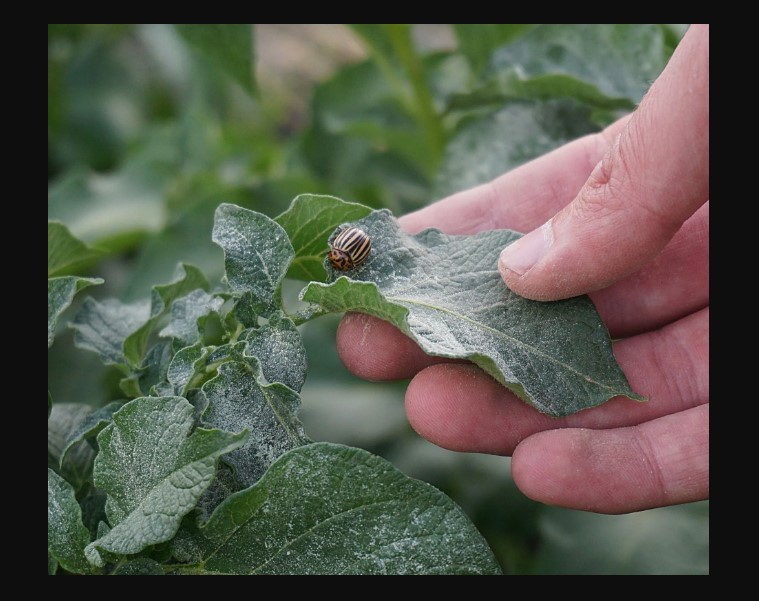In the battle against household pests, many homeowners are turning to natural remedies to avoid the potential risks associated with chemical pesticides. The allure of natural pest deterrents lies in their ability to effectively repel pests while minimizing harm to the environment, humans, and beneficial wildlife. By harnessing the power of nature, individuals can protect their homes and gardens from unwanted invaders without resorting to harsh chemicals.
Understanding the Importance of Authentic Information:
Before delving into the various Natural Ways to Deter Pests, it’s essential to emphasize the importance of authentic information in guiding our pest control efforts. Misleading information in this realm can lead to ineffective solutions or unintended consequences. Authenticity ensures that the methods we employ are not only safe and effective but also sustainable in the long term. By relying on scientifically sound practices and verified strategies, we can confidently address pest issues while minimizing potential risks.
The Benefits of Natural Pest Deterrents:
Natural pest deterrents offer a host of benefits that appeal to environmentally-conscious homeowners. Unlike synthetic pesticides, which can harm human health and the ecosystem, natural methods rely on plant ingredients, minerals, and other organic sources. By utilizing natural deterrents, individuals can:
- Protect the environment: Natural pest deterrents break down more easily in the environment, reducing the risk of pollution and harm to wildlife.
- Safeguard human health: By avoiding exposure to toxic chemicals, homeowners can protect themselves and their families from potential health hazards associated with synthetic pesticides.
- Preserve beneficial insects: Unlike chemical pesticides, which can indiscriminately harm beneficial insects such as bees and butterflies, natural deterrents target specific pests while minimizing collateral damage.
- Promote sustainability: Natural pest control methods support sustainable gardening practices by minimizing reliance on synthetic inputs and fostering a balanced ecosystem.
Effective Natural Pest Deterrents for Home and Garden:
- Neem Oil: Derived from the seeds of the neem tree, neem oil is a potent insect repellent that disrupts the growth and development of various pests, including aphids, mites, and whiteflies. Diluted neem oil can be sprayed directly onto plants to deter pests while nourishing the soil.
- Diatomaceous Earth: Composed of fossilized remains of diatoms, diatomaceous earth is a natural substance that effectively controls crawling insects such as ants, cockroaches, and fleas. When applied as a barrier around the perimeter of the home or garden, diatomaceous earth acts as a physical deterrent, dehydrating and ultimately killing pests upon contact.
- Companion Planting: Strategic planting of companion crops can help deter pests by disrupting their natural habitat and masking the scent of host plants. For example, planting marigolds alongside vegetables can repel nematodes and other soil-dwelling pests while attracting beneficial insects like ladybugs and parasitic wasps.
- Garlic and Chili Pepper Spray: A homemade spray made from minced garlic and chili peppers can effectively repel various garden pests, including aphids, caterpillars, and beetles. Combine minced garlic and chili peppers with water and a small amount of dish soap, then strain the mixture and spray it onto plants as needed.
- Essential Oils: Certain essential oils, such as peppermint, eucalyptus, and lavender, possess natural insect-repelling properties. By diluting these oils with water and applying them to plants or diffusing them indoors, homeowners can create an aromatic barrier that deters pests while adding a pleasant fragrance to the environment.
- Sticky Traps: Sticky traps coated with non-toxic adhesive can capture flying insects such as fruit flies, gnats, and whiteflies. These traps can be placed near windows, doors, or infested plants to intercept pests before they can cause damage.
Implementing a Holistic Pest Management Approach:
While natural pest deterrents can be highly effective, integrating multiple strategies into a holistic pest management approach can enhance their overall efficacy. In addition to using natural repellents, homeowners can:
- Practice good sanitation: Removing sources of food, water, and shelter can help deter pests and prevent infestations from taking hold. Regularly clean and declutter indoor spaces, seal food containers tightly, and eliminate standing water to deprive pests of essential resources.
- Encourage natural predators: Beneficial predators such as birds, bats, and predatory insects can help keep pest populations in check. To encourage their presence in the garden, provide habitat and food sources for these natural enemies.
- Rotate crops: Crop rotation can disrupt pests’ life cycles and reduce soil-borne pathogens’ buildup. By alternating planting locations each season, homeowners can prevent pests from establishing permanent residences in the garden.
Conclusion:
Natural deterrents offer a safe, sustainable alternative to chemical pesticides in the quest for pest-free living. By harnessing the power of nature, homeowners can protect their homes and gardens from unwanted invaders while minimizing harm to the environment and beneficial wildlife. By embracing authenticity and relying on scientifically proven methods, we can create pest-resistant environments that promote health, harmony, and sustainability for future generations.

